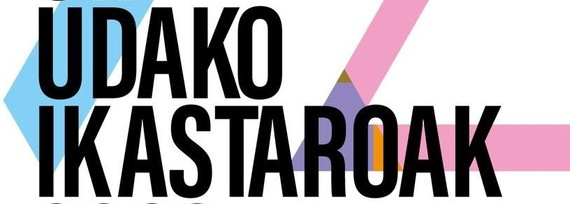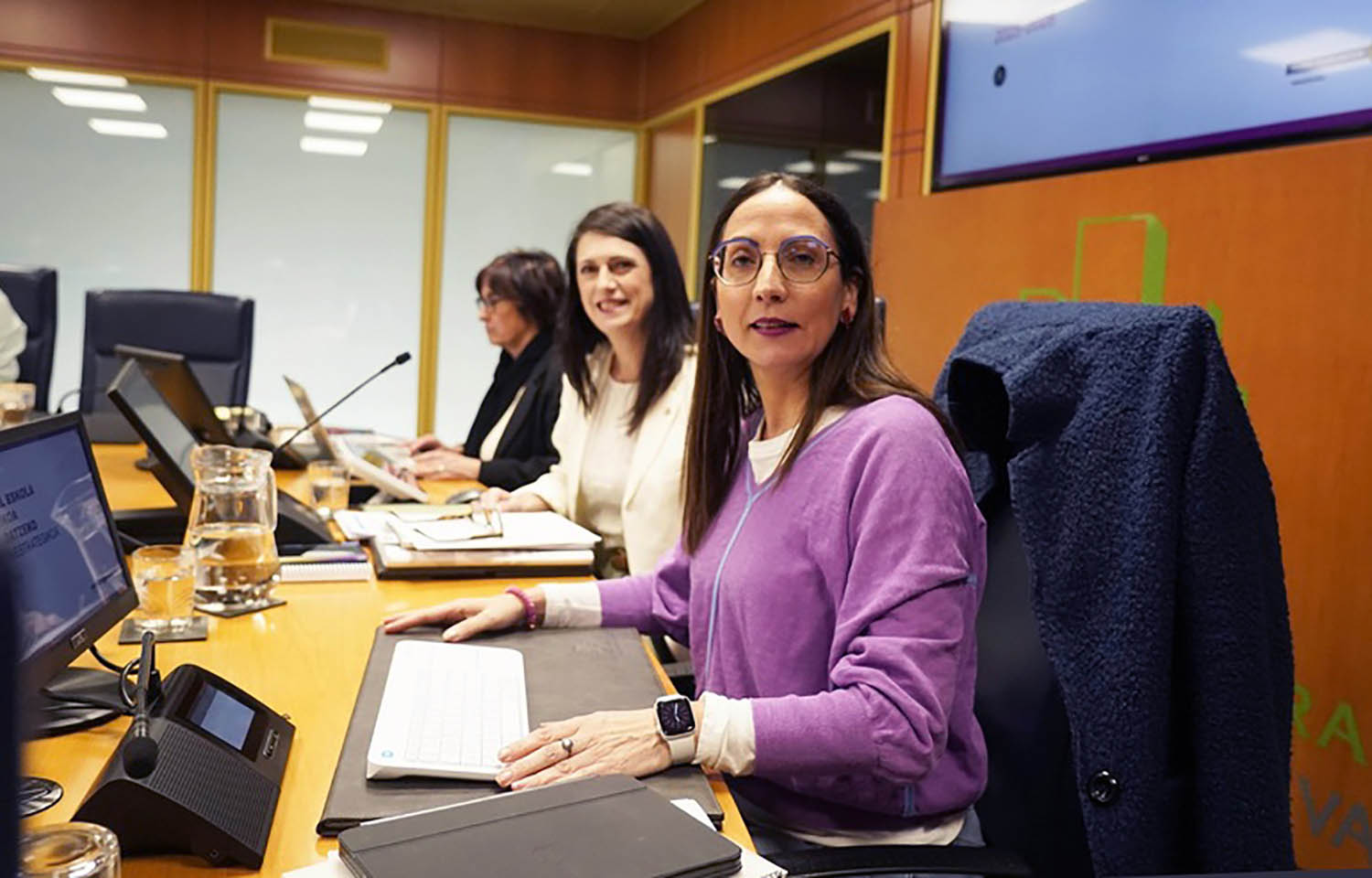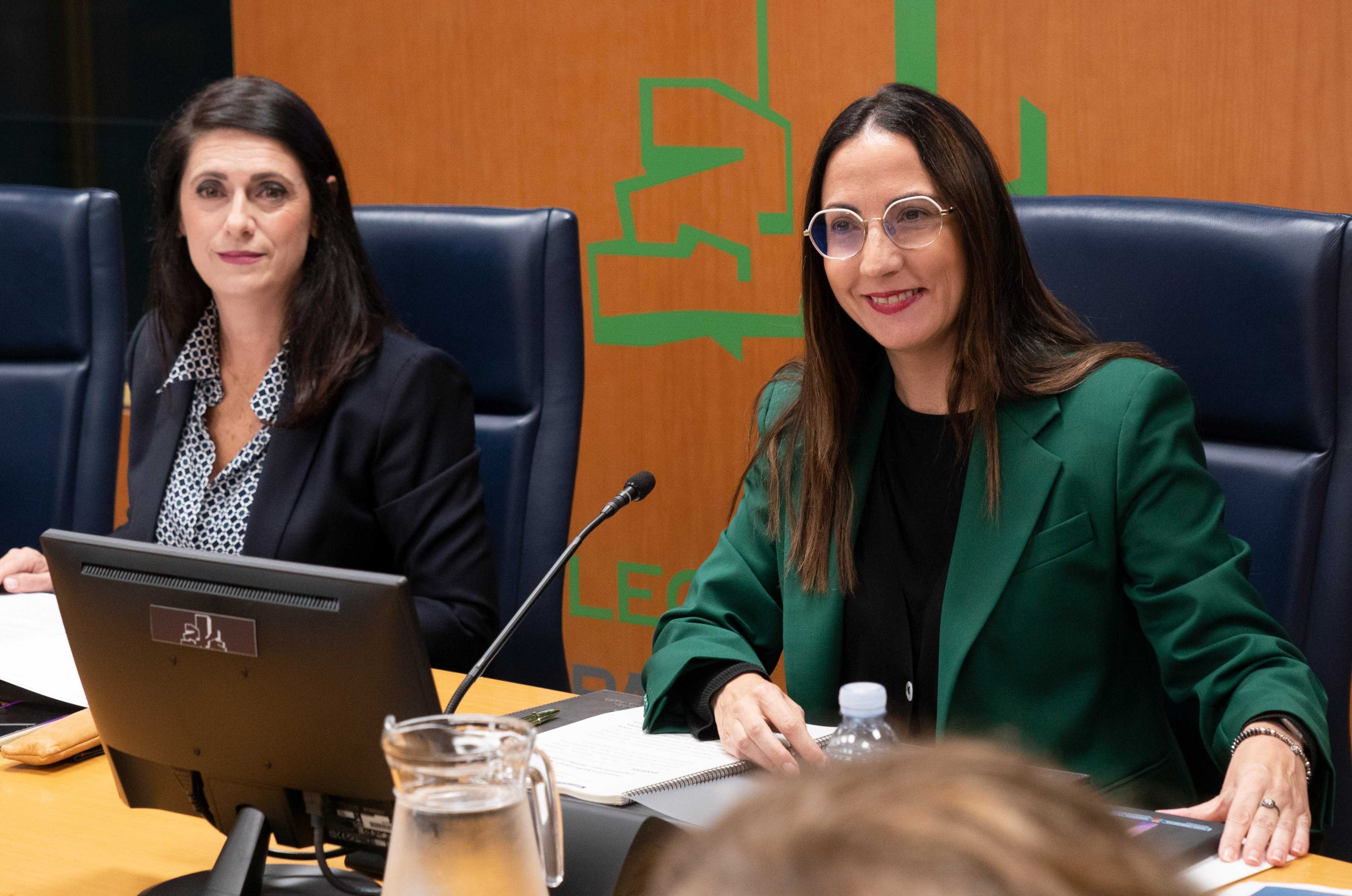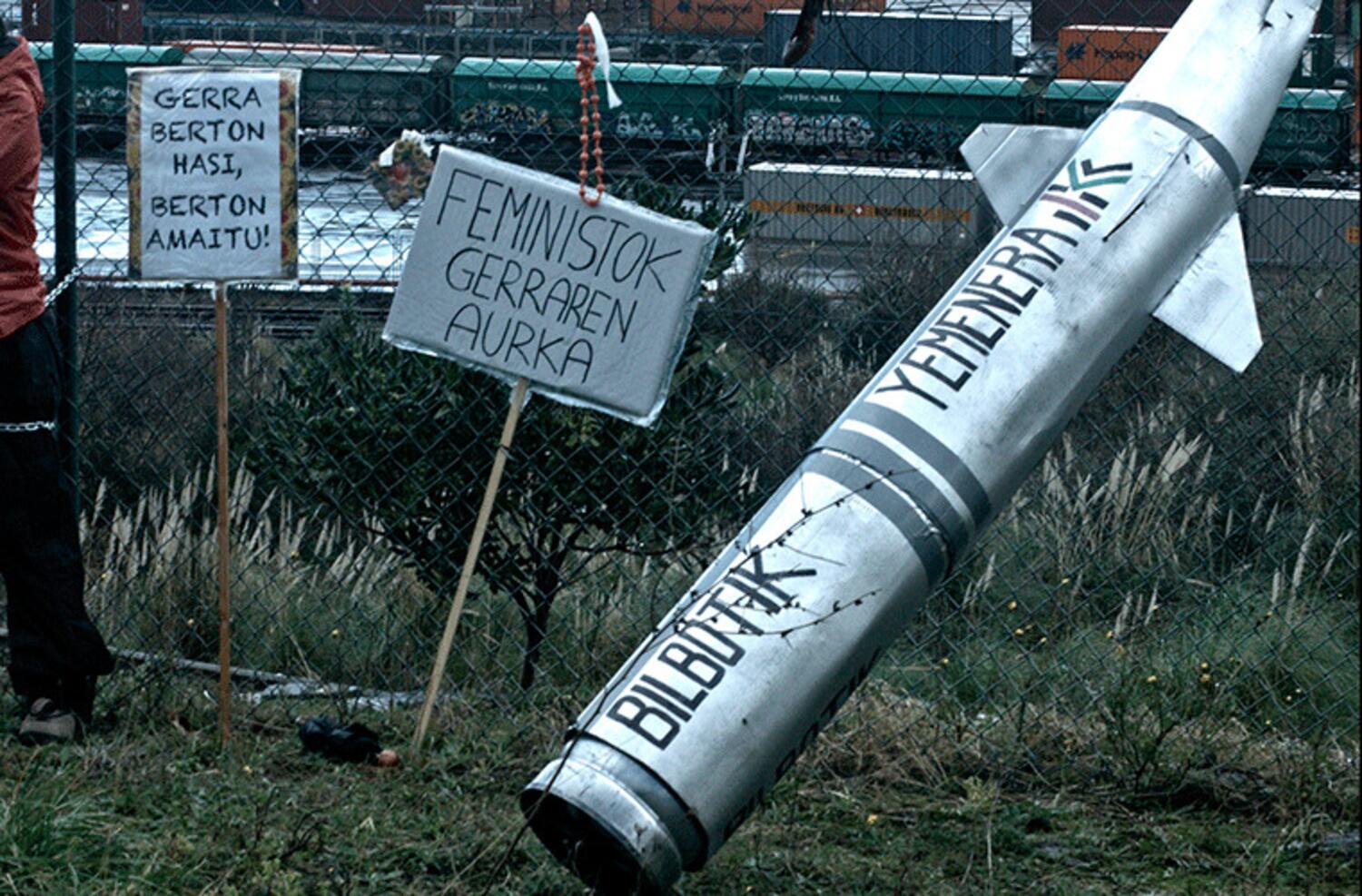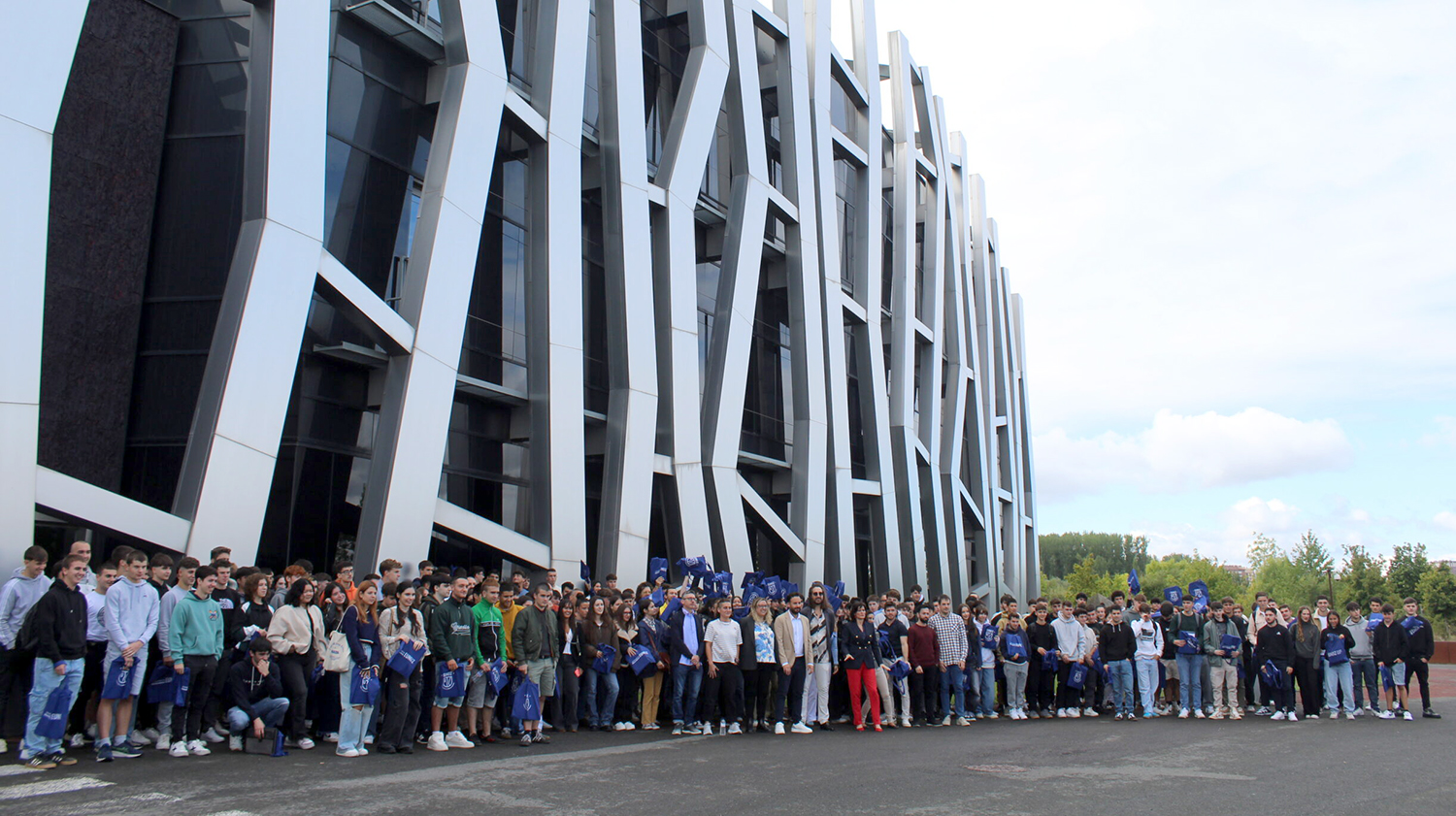"Students are sensitive to the environment; we have to take one more step: irritate"
- José Manuel Gutiérrez is an advocate of Environmental Education that also takes into account the social perspective. For years he has been a professor in this area, since 2005 he has been an Environmental Education Pedagogical Advisor in Ingurugela, Bilbao. It tells us about the way in which human beings relate to the environment, the nature deficit, the Greta Thunberg phenomenon and the need to boost activism among students, because “to influence collectively and socially” is more effective than the “eco-gens” we can do individually.

Today, green philosophy seems to be on the front line, but how much does it have of a bottomless claim? What is the real place of the environment in the educational centers of Euskal Herria?
The general perception is that the green philosophy is fashionable, but I do not believe: against climate change, about plastics … there has been movement for years, but then that is not reflected in the votes, and if we really want to develop that philosophy we need another political approach. Companies use ecology as an added value to better sell their products and clean up what they dirty covertly, but behind all this is green capitalism: capitalism and green are oxymorons, they have the opposite meaning and no third sense is pushed. If capitalism doesn't take the planet's boundaries into account, it can't be green.
Education, on the other hand, has long had a direct relationship with nature, which has been reflected in schools. In the 1970s, professors and professors showed their interest in the exits, in the 1980s they began to carry out projects related to ecosystems, started the first school orchards... and this interest has been expanding. In this century Agenda 21 has promoted environmental education.
More than environmental education, it claims eco-social environmental education, education for sustainability.
I very much like the debate on words and terms, I demand environmental education, but in society the concept of the environment is associated only with ecology and nature, leaving aside its relationship with the social sphere. To solve it, Unesco itself proposed the change of name: education for sustainable development. But talking about sustainable development is driving a vision of capitalism, insofar as it relates to a given development. I prefer to talk about education for sustainability, or eco-social education, which can lead to the transition process that we need because education is eco-social (energy, economic, social, care transition…).
Nature, economy and society are a triangle that sustainable development puts on the table, and using this scheme is to give more weight to the economy, but the world is not divided into those three blocks that put on the same level, the reality is that the biosphere is within the biosphere, society and within society economy, care, rights, relationships… as matrixes. The center is life in ecosocial education and to analyze the influence of any process that takes place we take into account two principles: that we are eco-dependent and interdependent. We therefore have to balance what we take from nature to meet our needs and interests with the biosphere cycles, which otherwise end the biosphere and, therefore, end up with us, and we have to bear in mind that the help of the rest of human beings is essential. The introduction of these two principles in education and the treatment of the eco-social problems in school is the first step for awareness and, ultimately, for the students' impulse to transformative actions.
"Talking about sustainable development is driving a vision of capitalism. Eco-social education can bring about the transition process we need."
Is that the goal of environmental education, to move on to action?
The same thing. Through our projects we try to transform both the school and the environment: clean and improve rivers and forests, create natural guides, ask for changes to the authorities…
Would I have featured an educational project?
Confint (Cuidemos el Planeta International Congress). He was born in Brazil and has spread to other countries. The students themselves organize assemblies in the educational centers, research on a subject (related to climate change, eco-social crisis, biodiversity…), discuss among them and propose alternatives, and include the political dimension of eco-social education. They make proposals at the centre, but they also make proposals to the authorities: “We are willing to do this, you?” In the Ekoetxea of Busturia, for example, we do Euskal Confinta every year.
You talk about the political dimension of eco-social education. Does it mean the internalization that the eco-social system must necessarily be anti-capitalist?
I am referring to policy in its basic sense: let it be useful to the citizens. Anticapitalist? Well, if the process is done right, that will be the result, or it will be close to anti-capitalism, but we don't impose preconditions: our role is to empower the student, show their ability to transform things and the possibilities that society offers to do it, and then he himself will decide how to act and what commitments he wants to make. You can conclude that public transport is more appropriate than the car, but where it lives or where it has to go, maybe you bet on the car, and you can ask the authorities to organize transportation in a different way… For that you can get into social movements; we drive it, activism.
And to foster activism, what is more effective: working positively on the relationship of human beings with the environment (what we can do to change things) or showing our oppressive relationship to shake our consciences?
Both are basic. Work must be done on the origin and consequences of the eco-social problems, but the next step is to explain that there is always the possibility of modifying them, even beyond the “echo”. I can only do something with the eco-geniuses, but it's more important to socially influence the group, together, through activism.
In addition to opening new processes, we let them know that processes are already underway on the road to change and that they can join them. For example, they can choose local food versus agro-industry.
"Some say that the Greta Thunberg phenomenon has been driven by neoliberalism. It seems to me that the txapela can be removed and I think we have to take care and help this phenomenon"
However, the power of agro-industry is greater. What is the potential and strength of education to leave school and influence the amount of inputs students receive in the opposite direction?
That is the key and one of the most difficult challenges. At school, we want to promote solidarity, responsible consumption, healthy eating... and as soon as they leave the street they find competitiveness, consumerism, junk food... but at the same time that is the heart of environmental education, a context in which there is environmental education. Our job is to facilitate access to information to know the reality in front of all these adverse inputs; enable social participation, propose alternatives and implement them; sensitize and ensure that they are able to be indignant about some issues. In short, I would say that our students are sensitized to many issues, because they receive a lot of information about nature care, about recycling, about plastic damage… We have to take one more step: irritate.
So the path is the irritation of awareness?It is awareness that there is a problem, that I am part of that problem (for my attitude, for the consumption I make, for leisure…) and that I am also
part of the solution. We use a sequence of three: What can be done? What can we do? What do we do?
How do you value the Greta Thunberg phenomenon?
I value the phenomenon, ha, ha. This young woman has achieved, modestly and immediately, what has so far not been achieved by environmentalism: bringing together various sectors around environmentalism. In fact, the phenomenon of Greta cannot be understood without an environmental education, because environmental education is behind it and many other Gretas: they have seen that they are part of the problem and of the solution. Social media also has a lot to do with all of this. I remember that in 1992 a 12-year-old Canadian launched at a summit in Rio de Janeiro a message similar to Greta, but it did not have that much impact.
I ask the students, to see what they think of Greta, and the vast majority join in their struggle, many schools also stood up or claimed last year against climate change, so it has influenced the students. Some say that it is a phenomenon driven by neoliberalism, to see who is behind Greta and who puts the money to do things… But to me what this girl has achieved seems crazy and I think we have to take care and help in this phenomenon.
"The problem is ethical, how we human beings understand our role in the world, how we relate to nature, but also to others"
Some schools are starting to go out into nature or at least out to avoid closed places during the pandemic.
They're gradually coming out, yes, but my perception is that fear and responsibility still prevail, and it's understandable, but that doesn't mean that we have to push ourselves out. In the centers they bet, the conditions and protocols they must fulfill do not help.
In the students, we already perceive a deficit of nature. The 21st century is the first native digital generation that grows inside the home in front of a screen. It can be a generation far from contact with nature, with greater health risks than the previous ones. Who passes his childhood separated from nature, how will he recognize and value living beings, how will he care for the biosphere? Environmental education can be a great resource for responding to this deficit, and yet we are undergoing cuts.
COVID-19 makes us more aware of the influence of the environment on health. How has the pandemic changed the keys to the environmental education of the future? It
is true that this debate has taken place, but the previous one and the present one is the same enemy. It has adopted new dimensions, but the enemy has not changed, and therefore neither has the keys to environmental education. The United Nations has linked the pandemic to the loss of biodiversity, but how many people have settled in it? How many people are willing to change their profit paths to cope with this loss? Opposition to economic growth is not yet understood, even if it is repeated on a finite planet. A more conscious society is more likely to change things, and that's our job.
What is that enemy that hasn't changed?
Anthropocentrism. The problem is ethical, how we human beings understand our role in the world, how we relate to nature, but also to other human beings. So internalized anthropocentrism uses two instruments to maintain its power: capitalism, which is an economic system that benefits it, and heteropatriarchy, which is a social contract that keeps the white man mature at the top of the pyramid.
We have had to endure another attack on our language by the Department of Education of the Government of Navarre; we have been forced to make an anti-Basque change in the PAI program. In recent years, by law, new Model D schools have had to introduce the PAI program and have had... [+]
Public education teachers have the need and the right to update and improve the work agreement that has not been renewed in fifteen years. For this, we should be immersed in a real negotiation, but the reality is deplorable. In a negotiation, the agreement of all parties must be... [+]
Lehengai anitzekin papera egitea dute urteroko erronka Tolosako Lanbide Heziketako Paper Eskolako ikasleek: platano azalekin, orburuekin, lastoarekin, iratzearekin nahiz bakero zaharrekin egin dituzte probak azken urteotan. Aurtengoan, pilota eskoletan kiloka pilatzen den... [+]
Garai kuriosoak bizi ditugu eta bizi gaituzte, zinez. Hezkuntza krisian dela dioten garaiak dira eta, gutxien-gutxienean, aliritzira, ba aizue, 2.361 urte ditu gaurgero boladatxoak.
Ez zen ba debalde joan Aristoteles bere maisu maite Platonen akademiatik lizeo bat muntatzeko... [+]
















